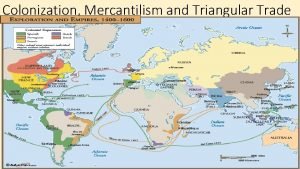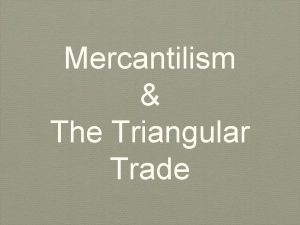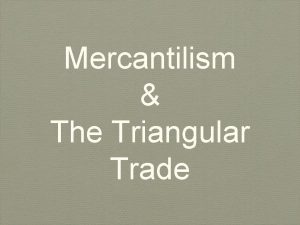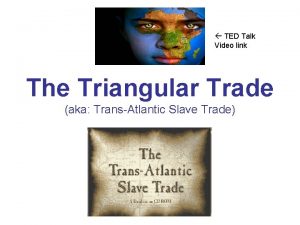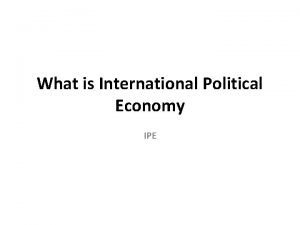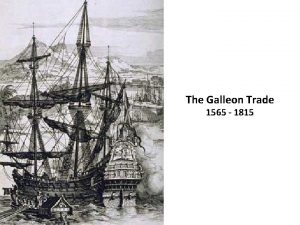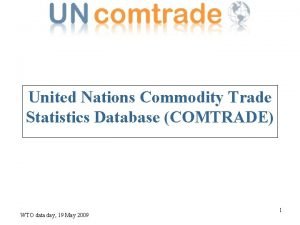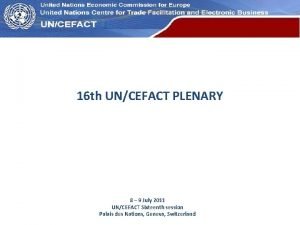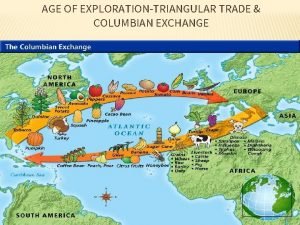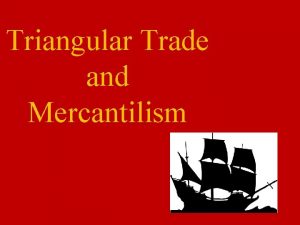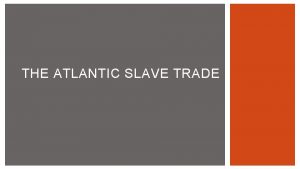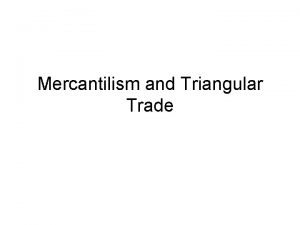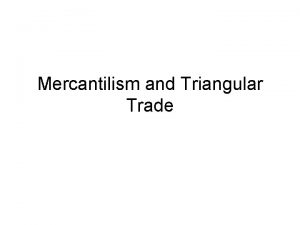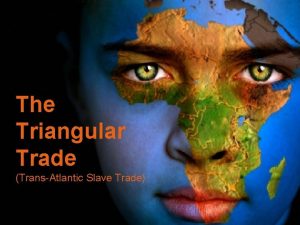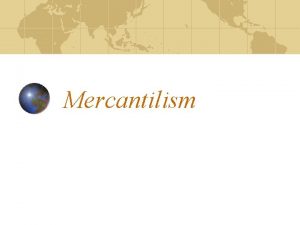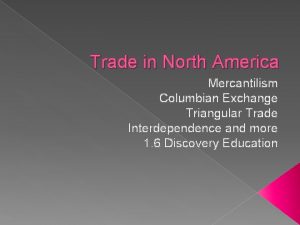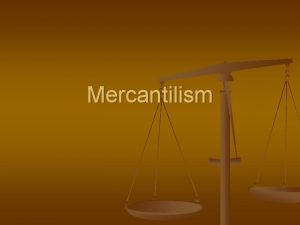Mercantilism The Triangular Trade Mercantilism A nations economic











- Slides: 11

Mercantilism & The Triangular Trade

Mercantilism • A nation’s economic strength came from protecting and increasing its home economy by making and keeping strict control over its colonies and keeping a favorable balance of trade with them.

Mercantilism • Theory guided England most European nations during the 17 th and 18 th centuries. • More gold coming into a nation than going out made a nation powerful. • England saw the American colonies to be an economic resource. • England had to export (sell abroad) more goods than it imported (bought from foreign markets). Favorable balance of trade. • Colonies were created to be a constant source of raw materials and become profitable markets for the manufactured goods to the country that owned them (the “Mother Country”).

Mercantilism

Navigation Acts • To control trade from the colonies, England passed a number of laws between 1650 -1767 known as the Navigation Acts. • These trade laws were extremely restrictive (onesided). • Colonists could only conduct business on English or colonial-made ships. • To trade with another country all goods had to be sent to England first so that they could be taxed. • Tobacco, sugar, timber and cotton could only be traded with England.

Navigation Acts • Colonies were not allowed to create their own factories so that England could control trade/business. • Trade regulations were not rigidly enforced for decades. • Colonies become a safe haven for smugglers and pirates

The Triangular Trade

The Triangular Trade • Triangular Trade: a pattern of colonial trade where slaves were purchased on the African Gold Coast with New England rum then sold in the West Indies for molasses or sugar which was then sent back to New England to manufacture rum.

The Triangular Trade • Salutary Neglect: term used to describe how the English neglected to enforce the Navigation Acts. • This “neglect” leads the colonies to enjoy a sense of “free trade”. • In 1763 England begins to enforce these laws that will cause the colonies to protest harshly. One of the many conflicts with England that will lead to American independence.

Vocabulary and Information • Balance of trade – Having fewer imports than exports. • Imports – Goods bought from other countries. • Exports – Goods sold to other countries. • Duties – Taxes on imports • Free Enterprise – Economic competition with littler government control.

Vocabulary and Information • Through Mercantilism, the colonies sold raw materials such as timber, fur, and tobacco. • Through Mercantilism, England would sell manufactured goods such machines, hardware, and furniture.
 Mercantilism triangular trade
Mercantilism triangular trade Mercantilism theory of international trade
Mercantilism theory of international trade Triangular trade mercantilism
Triangular trade mercantilism Ted talk atlantic slave trade
Ted talk atlantic slave trade Marxism in international political economy
Marxism in international political economy Galleon trade and mercantilism are synonymous
Galleon trade and mercantilism are synonymous Upper triangular matrix and lower triangular matrix
Upper triangular matrix and lower triangular matrix Why do nations trade?
Why do nations trade? United nations commodity trade statistics database
United nations commodity trade statistics database United nations economic commission for europe
United nations economic commission for europe Triangular trade age of exploration
Triangular trade age of exploration Transatlantic slave trade apush
Transatlantic slave trade apush
